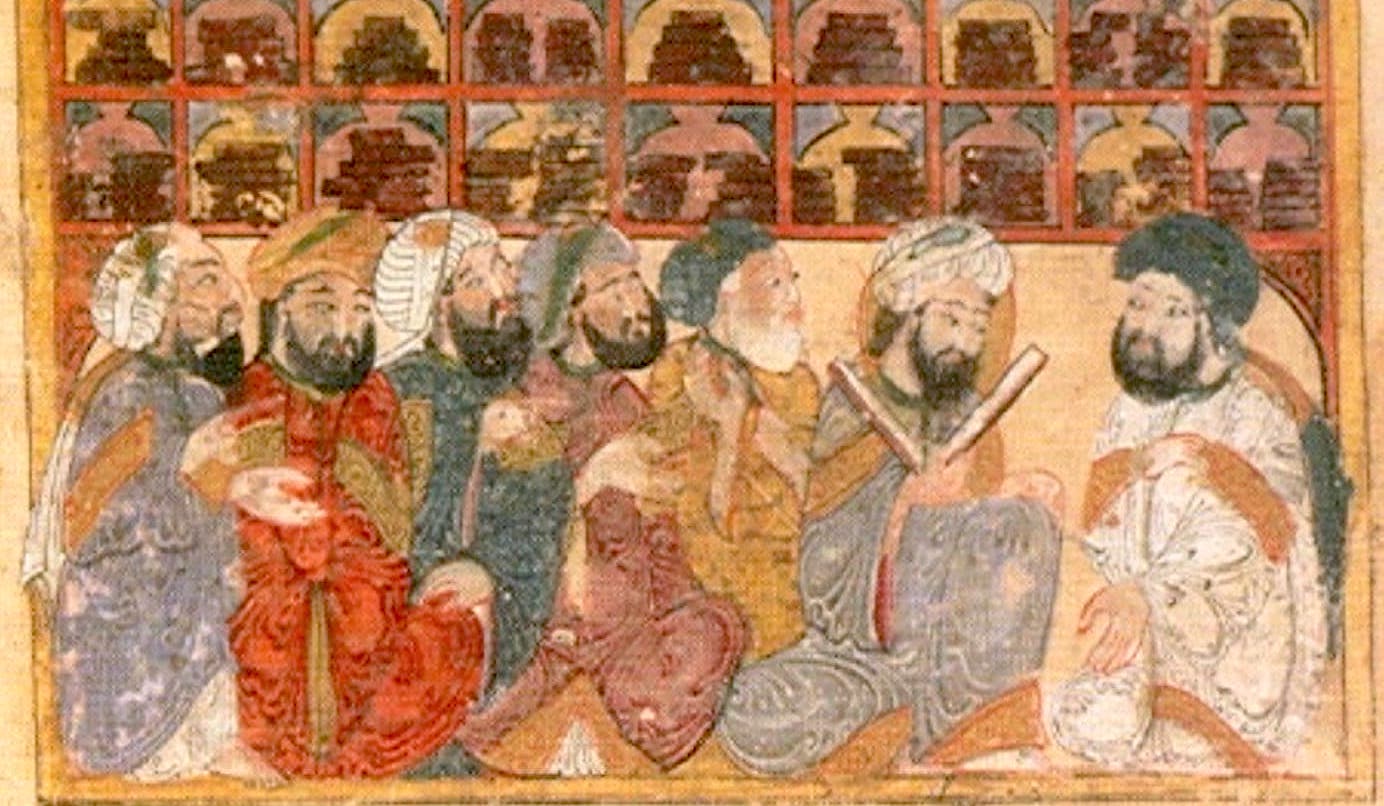The Islamic Golden Age was a period during which science, literature, geometry, astronomy, and other fields of knowledge flourished from the eighth to the thirteenth century. Without the scholars of this period, who translated the works of the Ancient Greeks, it is likely that much of ancient knowledge would have been lost.
Algebra, which comes from an Arabic word ( al-jabr,الجبر) was developed during the period, and we owe our numerals to Arabic scholars. Doctors made advances in the diagnosis of cancer and even performed complex surgeries during that period.
Countless stars were discovered and astronomical theories were developed by scholars during the Islamic Golden Age, as well.
The cultural, scientific, and political growth during the Islamic Golden Age was noted throughout the Muslim world, which stretched from Central Asia, the Middle East, across North Africa, and all the way to Spain.
Yet, the most prominent city during the period was Baghdad in modern-day Iraq, where the House of Wisdom was established by Abbasid Caliph Harun al-Rashid in the late eighth century.
Baghdad was center of knowledge, progress
As Baghdad was the largest city in the Islamic world at the time and the center of culture and trade, scholars from across the globe journeyed there to study, learn, and write at the House of Wisdom.
As the House of Wisdom, which mirrors the great Library of Alexandria, was destroyed by the Mongols during the Siege of Baghdad in 1258, there is virtually no archeological evidence for the contents and layout of the structure.
There is some debate as to whether the House of Wisdom served as a public academy, where intellectuals and poets gathered to share knowledge or a private library for the Abbasid Caliphs.
Either way, its prominence as an intellectual site is well documented by contemporary writing and the many works of scientific and scholarly importance produced there.
During the Islamic Golden Age, scholars translated massive amounts of important works of poetry, mathematics, and science from ancient cultures around the world, particularly of Ancient Greece.
These scholars, often fluent in Latin, ancient Greek, Arabic, and Syriac, hunted down the most important texts from ancient cultures across the world and translated them into Arabic, allowing them to be widely studied throughout the Islamic world.
Scholars of Islamic Golden Age translated ancient Greek works
This knowledge was easily spread across the Muslim world because Arabs had learned the art of making paper quickly and effectively from the Chinese, allowing them to disperse manuscripts quite quickly.
Europeans later learned this paper-making technique from the Arabs.
At the time, Arabic was a “lingua franca,” a language used to communicate across many cultures, much like English today.
Using the knowledge of the ancient Greeks, countless Islamic scholars expanded knowledge of biology, geometry, mathematics, medicine, and astronomy.
The movement was characterized by a quest for knowledge that the Abbasid Caliphs considered to be required by the Quran, as it was included in the Hadith, or the record of the Prophet Mohammad’s sayings and actions.
It is inaccurate, however, to assume that all those who participated in the Islamic Golden Age were Muslims. In fact, many Christians, Jews, and members of other faiths were prominent intellectual figures during the time.
Thus, the caliphs spent large sums of their vast wealth sponsoring not only scholars who were conducting research but also translators who worked to disperse the knowledge of ancient cultures.
Islamic golden age scholars preserved the knowledge of ancient Greeks
This wave of intellectual curiosity and state-sponsored research in the Islamic world was a sharp contrast to Europe, which was in what some used to call the Dark Ages, when literacy rates were low and theology was preferred to knowledge from antiquity.
During this time, in much of Europe, much of the works of Aristotle, Archimedes, and other important ancient Greek figures were completely lost or even unknown.
Yet, the Muslim world was alight with the fire of knowledge, as scribes tirelessly translated the works of ancient Greek scientists, philosophers, and mathematicians, whose works later inspired some of the most important intellectuals in history.
While the quest for knowledge led scholars of the Islamic Golden Age to the works of the ancient Greeks, theology also played a part.
Muslims believe that the Quran, the holy book of Islam, contains within its pages the entirety of the world of existence, which includes all realms of art and science.
Hence, many theologians of the period pored over texts from ancient Greek sources in an attempt to find analogous sections of the Quran to prove that Islam was the true faith.
The Golden Age of Islam came to a close in the thirteenth century after years of invasions by Mongol armies.
Some consider the destruction of the House of Wisdom by the Mongols to mark the end of the period.
It is said that the Mongol invaders destroyed so many books from the city by throwing them into the Tigris River that the river itself turned black from the ink of the pages.
Lastly, as the Ottoman Empire began to gain power, the focus of the Islamic world began to shift to Turkey.
Source: Greek Reporter







